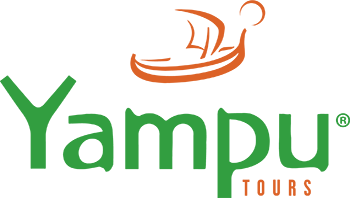Travel is supposed to be an adventure, right? Whether it’s a place you’ve never been (like Peru) or a destination you visit annually, it’s still an adventure.
I chose Peru for several reasons, key among them:
- Peru offers a sense of daring enterprise that is reminiscent of “Indiana Jones.” At its center is the real-life academic exploration of “lost civilizations.” The well-chronicled “discovery” of Machu Picchu, in 1911, by Yale historian Hiram Bingham, brought the famed Incan civilization to scholars, adventurers, and now tourists.
- From the Amazonian basin to 20,000 foot Andean peaks, Peru casts a mysterious, exotic spell. There is an unmapped jungle, the world’s deepest canyon, sand dunes, 1500 miles of Pacific coastline. And we’re talking a country smaller in size than Alaska. I know I’m just skimming the surface in one trip to the famed Inca region.
- The flight from North America, though long, does not trigger much jet lag. There is just one-hour time difference from the U.S. East Coast and then only during Daylight Savings Time, which Peru does not recognize. The time difference from the U.S. mainland is no more than 3 hours. That’s a big plus in my book.
Itinerary and Logistics
The big question, especially in the age wide-ranging Google searches and transparent Trip Advisor reviews, is whether a travel/tour professional is really necessary. I’m in for the help of a travel professional. I chose Yampu Tours. As an experienced yet older traveler, engaging a knowledgeable tour company is a must. Especially in a country with a less developed tourist infrastructure. This isn’t France.
Based on my experience in Argentina with Yampu, I know they will do a great job on the Peru trip. They already have, in presenting a customized itinerary for myself and two traveling buddies, travel insurance options, international and domestic air reservations.
I don’t want to deal with in-country logistics. I do want train tickets, local guides, time-sensitive admissions (as in Machu Picchu) sorted out beforehand. Again, Yampu has done all that, and more.
I’m coming upon my seventh decade. Unapologetically, I’m at the age where I feel it’s okay for someone else to vet the hotels, arrange the transportation, provide on-the-ground support when things go awry. And I think that’s okay.
That said, I don’t want the “Deep State” of Tour Operators.
Yet, I don’t want every hour filled nor every meal planned. And Yampu gives you plenty of free time. I do want to know what I’m doing day-to-day, not but second-to-second. I’m looking for flexibility, some time to roam around on my own. Even some “toes up” time. Check and check.
The importance of friends’ recommendations on Peru
Your own network is the most reliable place to start a trip prep, including the selection of a tour company.
Why reinvent the wheel? Your friends know you, your quirks, the way you live. And you have the same basic knowledge about them. So when they make a recommendation for a restaurant in Lima, for example, you immediately know:
- They always choose the most expensive/the cheapest place to eat.
- Their sense of culinary adventure is close or not so close to yours.
- Invariably, they will eat at the hotel. In that case, don’t bother.
Friends’ suggestions provide important insight. For example, I’ve had more than one Peru-savvy friend counsel me on remedies for altitude sickness. One recommendation was to take the acclimation process slow — and have this – Altitude RX– on hand.

Another friend suggested a joint ticket available for same-day visits to the Pedro de Osma Collection (OSMA), MATE, the museum of iconic Peruvian photographer Mario Testino, and the Museum of Contemporary Art.
All these art venues are located in the quite hip, bohemian neighborhood of Barranco, a seaside quarter once favored by Lima’s aristocracy. Again, Yampu has left the time in the itinerary for me to explore on my own.
The last bit of advice, which I’m taking to heart, is the importance of hydration at altitude.
Hydration must begin beforehand, not once you land in the mountains.
My itinerary will wind through Peru’s Sacred Valley at elevations well above 5,000 feet. To help acclimate, I’m starting now, a week before departure, to drink (or try to drink) 2 liters (approximately 64 oz) of water per day.
Ahh, the Internet
The internet is the ultimate prep tool. Answers to specific questions about anything.
What’s the weather going to be like in Machu Picchu?
The 2-week forecast. It is very handy when deciding whether to pack the rain gear.
I like details on my destination: time, the distance between stops, phases of the moon…
Really, phases of the moon? Okay, here you go.
What’s the altitude along my itinerary?
Some perspective on Peru’s Andean interior. Nearby Lake Titicaca is at 12,500 feet.

Do I need additional vaccines?
Typically, tour operators will advise on recommended preventive shots for specific locations. Further, the Center for Disease Control (CDC) has a wonderfully comprehensive website. Here’s the update on Peru.
I plan to climb Huayna Picchu, towering a thousand feet above Machu Picchu. But what about coming down?
I’ll be that lady coming down on her backside, clinging to the wall.
The Upshot
I began my prep for this trip with literature. I’ve touched on Peruvian authors and travel writers, read magical stories, fictional histories of the Marxist era of the 1980s, essays, and non-fiction, in an attempt to unravel Peru’s diverse cultural, historic, political currents. Here are my recommendations that have informed my impressions of Peru. Travel, as always, will confirm or dispel the assumptions gleaned from the armchair. Travel does that.

